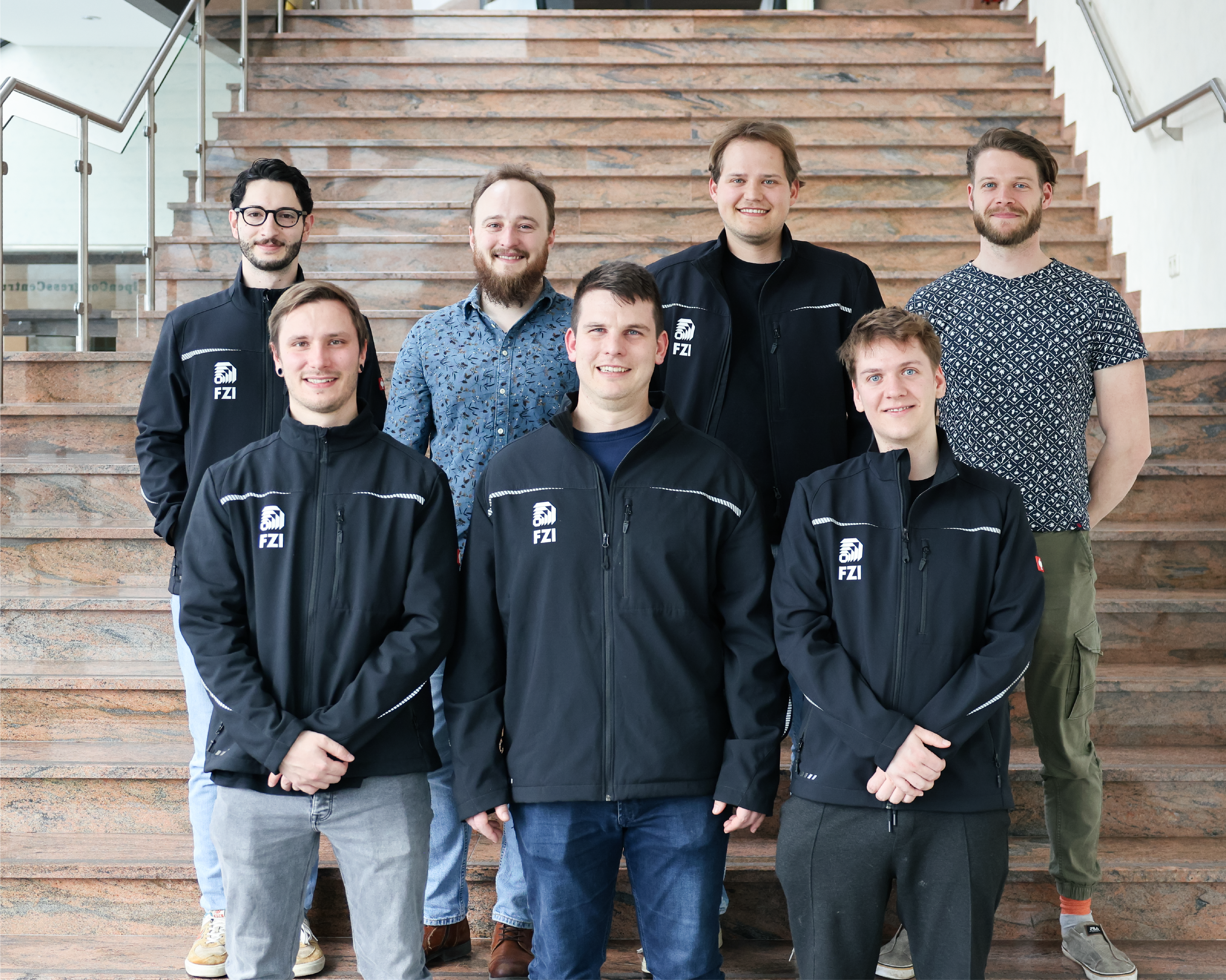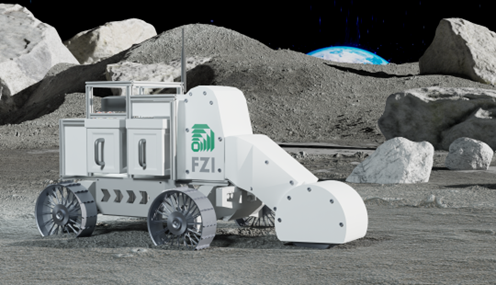Team FZI Dust
Forschungszentrum Informatik
The Team
The FZI Research Center for Information Technology is a non-profit institution that conducts applied research in information technology and technology transfer. It has a long history of navigating rough terrain with pre-existing and custom-built mobile robots. For example, the bio-inspired six-legged walking robot LAURON is currently in its 6th generation and is based on more than 35 years of walking robot expertise. A team of commercial walking robots, SPOT and ANYmal, as well as the husky platform, were used to win the previous ESA SRC. These robots rely on an extensive background of advanced software components for 3D mapping and localization, planning, vision, and control.
As a research transfer institute, the FZI develops robust technologies on a high technology readiness level (TRL) for innovative pilot applications. In various projects, the expertise ranges from custom field and service robotics to mobile systems and advanced manipulators. The FZI develops and supports but also relies on open-source software to enable modular software reuse at a high industrial grade. For example, the FZI has developed a robust 2D SLAM and navigation system for an industrial partner based on Google’s cartographer stack. This robust software is used on many automated vehicles on the shop floor at different customer sites. The Living Lab Service Robotics combines this software know-how with commercial and custom-built hardware to create complex but robust prototypes. It has access to a 3D Printer array and a full CAM Prototyping workshop, allowing the team to bring novel prototypes into reality rapidly.
Team FZI DUST is a unique blend of research scientists, each contributing expertise in mechanical engineering, electrical engineering, computer science, and mechatronics. As participants of, e.g., the SpaceBotCup 2013, SpaceBotCamp 2015, and the previous iteration of the Space Resources Challenge, the team is familiar with the conditions of space-related competitions. They have already gained experience in navigation in unknown and rugged terrain as well as in the localization and retrieval of objects, combined with communication affected by a delay. The team combines mobile outdoor robotics experience, deep knowledge of space use cases, and strong skills in tech transfer to industry at a high TRL. With this experience, the team FZI DUST is uniquely positioned to contribute significantly to the ESA Space Resources Challenge – Collection and Processing of Lunar Regolith.
The Solution
The FZI DUST’s approach features a wheeled, teleoperated robot equipped with an excavator arm and a screen-based beneficiation unit. While some tasks, like excavation, are automated to conserve astronaut resources, teleoperation is facilitated through a remote command center that communicates with the robot via an optional lander acting as a relay and camera post.
This approach ensures efficiency, durability, and autonomy, making it well-suited for lunar regolith collection and processing.

